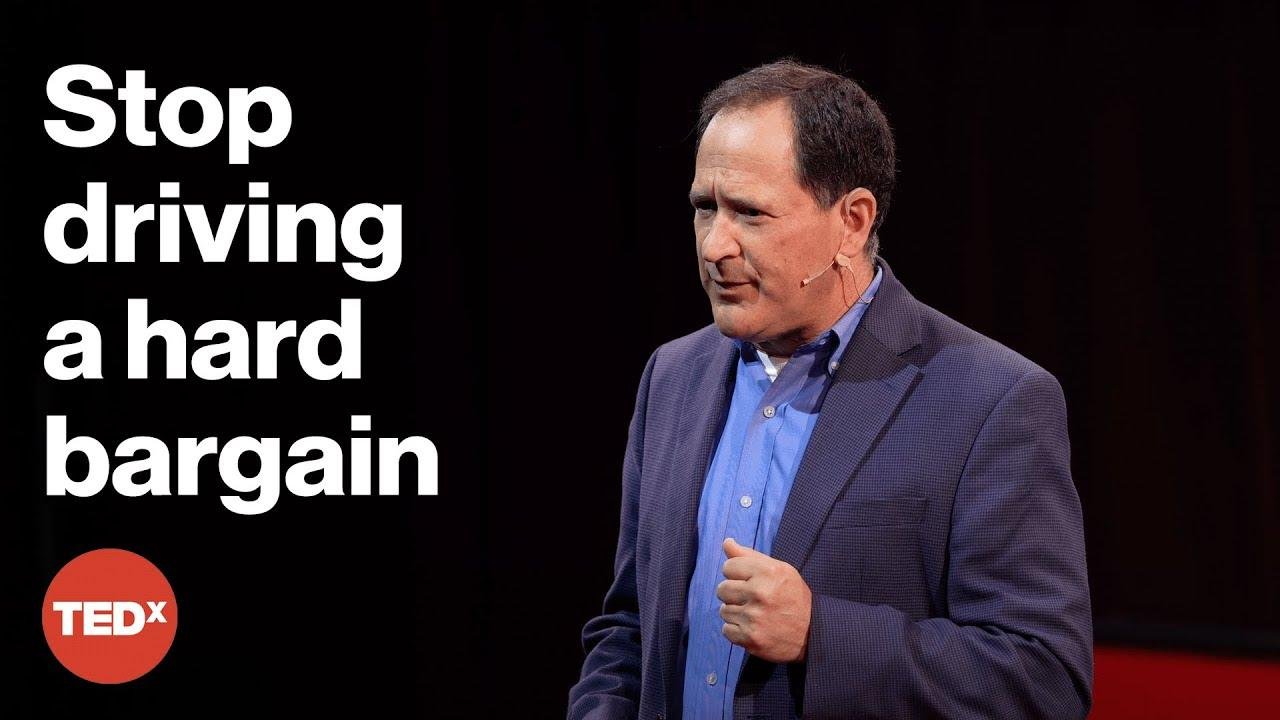Title: How Being Unpleasant Hurts Your Ability to Negotiate | Russell Korobkin | TEDxUCLA

Great negotiators focus on meeting the needs of the other party, not just their own. Radical empathy is the key to negotiation greatness. No one wants to be taken for granted or disrespected - so focus on understanding the other person's perspective. It's not just about getting what you want - it's about giving to get what you want. Good luck in all your negotiations! [Applause]
# The Importance of Empathy in Negotiations
## Failed Negotiation Story from an Ancient City: The Importance of Finding Common Ground 🐴
Steve Lubat's failed negotiation attempts with horse guides in Petra demonstrate that successful negotiation requires more than just a firm understanding of what you want out of the agreement.
Despite the conventional wisdom of focusing all your energies on what you aim to gain from a negotiation, you will learn that the best negotiators adopt a different approach. Radical empathy, or the ability to truly understand the needs and perspectives of the other party, is the key to reaching mutually satisfactory agreements. The stories of Bono, Ivar Krueger, and the 'ultimatum game' demonstrate the importance of finding common ground in negotiations.
## The Paradox of Negotiation: Focus on What You're Giving, Not What You're Getting 🌍
The paradox of negotiation lies in the fact that to get the best results for yourself, you should actually focus on the needs of the other party. From negotiating with a horse guide in Petra to discussing everyday things like dinner plans with your spouse, focusing on what the other party wants out of the negotiation can greatly influence the outcome.
Empathetic negotiators prioritize the needs and desires of others over their own. They offer potential partners additional benefits that are valuable to them and make proposals that consider psychological and emotional needs. This approach is crucial for achieving mutually beneficial outcomes, regardless of the complexity or scale of the negotiation.
## The Story of Bono: How Radical Empathy Led to Unlikely Negotiation Success 🎤
The story of Bono and his negotiations with President Bill Clinton and conservative Republican leaders to achieve debt relief for some of the poorest nations in Africa showcases the effectiveness of radical empathy. By emphasizing what could satisfy the needs and desires of the other negotiators, Bono successfully managed to convince people to give up large sums of money for the benefit of others.
By demonstrating how debt relief would serve Clinton's humanitarian reputation and appealing to Christians' moral obligation to help the poor to conservative Republicans, Bono was able to present his proposal in a way that appealed to the needs of all parties involved. This approach made the negotiation incredibly successful, illustrating how emphasizing what the other party wants out of the negotiation can lead to effective and fruitful outcomes.
## The Value of Radical Empathy: A Key to Negotiation Greatness ⚖️
Radical empathy isn't just necessary in large and complex commercial or political negotiations – it also plays a crucial role in the day-to-day negotiations that make up our personal lives. Whether it's negotiating with vendors, dealing with contractors, or even getting your children to bed, the application of radical empathy can set the stage for better and more productive negotiations.
The effectiveness of radical empathy lies in understanding what's important to the other party and offering benefits that are valuable to them at a relatively modest cost. By placing yourself in their shoes and considering the implications of your proposals from their perspective, you can significantly increase the likelihood of reaching mutually beneficial agreements. Remember, in order to "get," you need to focus your attention on what you're "giving."
## Conclusion
When negotiating, focusing on what you can give to the other party instead of fixating on what you can get out of the agreement can radically transform the negotiation process. Empathetic negotiations are more likely to yield productive and mutually beneficial outcomes, as understanding and addressing the needs and desires of both parties are essential for reaching agreements that satisfy everyone involved. So, embrace the approach of radical empathy in all your negotiations – large and small – and observe the powerful positive changes it can bring to your negotiating journey!






